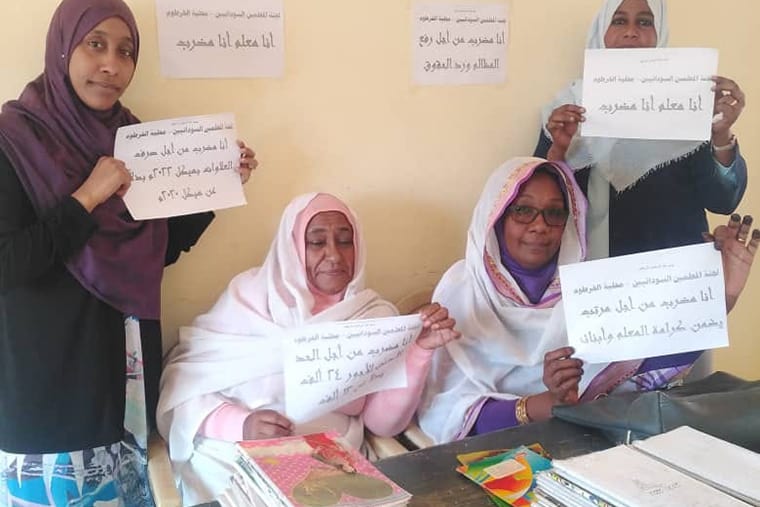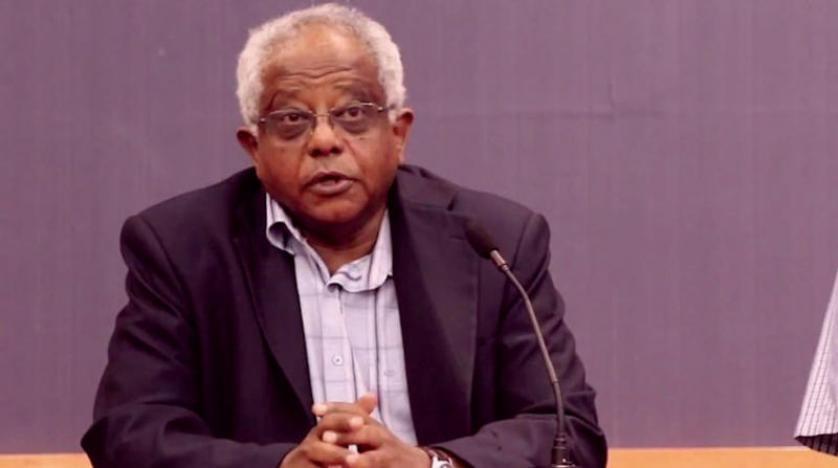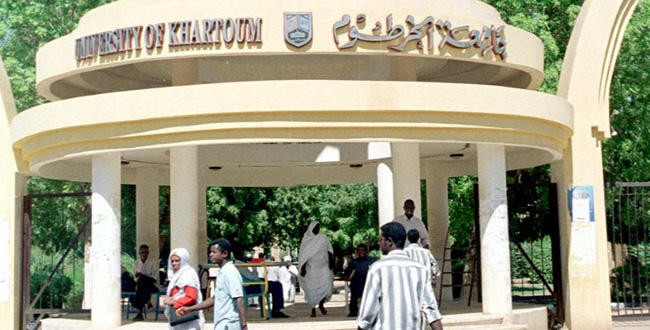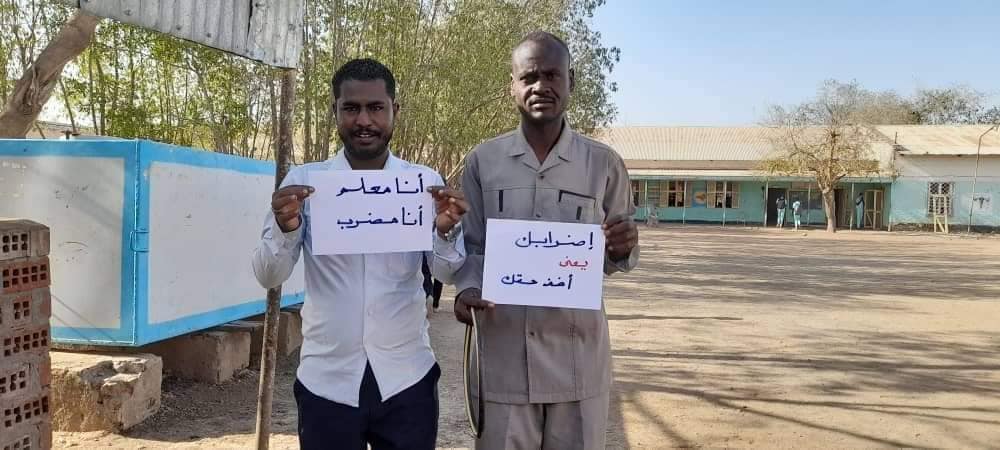Military authorities target the education sector
3 April 2022
Sudanese authorities under military coup leader Lt.-Gen. Abdel Fattah al-Burhan is targeting the education sector by reversing independent, civilian appointments and directives in the education sector and suppressing teacher protests.
Last Tuesday, authorities arrested several leaders of the Teacher’s Committee in Khartoum and other states who had helped organise the nationwide teacher protests over poor salary remunerations. According to a statement issued by the Sudanese Teacher’s Committee, a heavily armed force arrested the head of the Committee in Omdurman, Faisal Hassan Badr, and took him to an unknown location.

Teachers in last month’s strike demanded their monthly salaries to be doubled given the paltry minimum wage received of 12,000 Sudanese Pounds (US$ 20) per month. “This amount can hardly support us for a month,” says primary school teacher Saadia Ahmed, “with inflation skyrocketing in Khartoum these days, this amount is more suitable for a week.”
A week prior, Khartoum state authorities relieved 14 officials from the Education Ministry who had supported the broad strike of teachers.
Starting on 10 March, thousands of teachers went on strike across the country to protest the low monthly wages. According to the schedule announced by the Teachers’ Committee, the strike ended last Thursday, with nearly a 100% rate of participation by teachers in some states. A member of the Teachers’ Committee and a former official at the Ministry of Education in Khartoum State, Ammar Yousef, told Ayin the military coup-led government has launched a massive arrest campaign against teachers in a bid to quell the successful protests. Yousef was also one of those dismissed from his position in Khartoum State’s education ministry and replaced with cadres from the former regime, the National Congress Party. Yousef says Sudan’s coup leaders had agreed with elements of the National Congress Party (NCP) to foster their return to the civil service in Sudan, including education departments in the ministries and schools.
“They carried out a massacre in the education administration,” says Jehanne Kamal, a member of the Teacher’s Committee. Not only did the military leadership dismiss education ministry officials deemed sympathetic to the teachers, but around a dozen school principals were also dismissed in a bid to dismantle supporters of the protests, Kamal said. In other cases, principals with ties to the military regime sent threatening messages of dismissal to teachers who took part in the strike. “In the instant messaging application WhatsApp, we received messages from the principals of some schools to end the strike or stop work,” Kamal told Ayin. In her view, the education sector is now seeing a return to the dominance of the NCP, in agreement with the military coup leaders, to paralyze the teachers’ strike and ongoing anti-coup protests.

The return of the old guard
The majority of officials in education departments, including for higher education, were appointed during the transitional period under former Prime Minister Abdullah Hamdok. But some of these appointments were short-lived due to pressure from the Islamist movement, says Shehab al-Tayeb, a member of the executive office of the Forces for Freedom and Change (FFC). One of the first to be removed was the director of curriculum at the Ministry of Education, Omar al-Qarai – denounced by Islamists in Sudan for publishing a picture of a painting by the Italian Renaissance artist, Michelangelo di Lodovico within a sixth-grade history textbook.
Another appointment from the opposition FFC, former Education Minister Mohamed El-Amin El-Tom, was eventually replaced after the military coup by a minister loyal to Burhan, according to the Teachers’ Committee. According to al-Tayeb, the army leader Lt.-Gen. Abdel Fattah al-Burhan has reached agreements with some parties to form a new government led by civilians loyal to the military. Al-Tayeb believes that the army is looking for a political incubator to run the civil service, and there is no solution for it but to return the NCP elements. “Previously, this procedure was done timidly, but today the matter is conducted openly and there are only a few procedures left for the National Congress Party to return to public institutions.”

Higher education hijacked
Officials within higher education met a similar fate to their public-school counterparts.
On the same day authorities targeted the Teacher Committee leaders, the military government also excused university directors and dissolved the Board of Trustees. The now-replaced Board of Trustees is the supreme authority in universities, equipped with the mandate to approve university policy and authorize annual budgets.
Last Wednesday, a day after Burhan issued these dismissals, Sudanese university professors announced an open strike in response to the decision to dismiss 30 university directors and the board. “This is a blatant infringement on the independence of universities and a violation of the powers of the constitutional document that granted the prime minister the right to supervise higher education institutions,” says a statement issued by the Professional Union of Professors of Universities and Higher Institute.
Last September, former premier Hamdok issued several decisions aimed at improving the conditions of university professors, including a salary increase, but the finance ministry refused to implement the decision. Since January, professors at the University of Khartoum have protested the finance ministry’s refusal to implement the new salary structure, which stipulates that university professors are equal in pay with state officials, judges, prosecutors and parliamentarians. The Federal Ministry of Finance says that it is not obligated to implement the salary structure for university professors in light of the severe financial crisis facing Sudan this year.
A member of the trade union body for Khartoum University professors, Abdullah Al-Radhi, told Ayin that when the former prime minister appointed university directors, he had asked them to start preparing a law that would allow university directors to be elected instead of being appointed. Last Thursday, the University of Khartoum Professors Council – one of the largest Sudanese universities – approved the University of Khartoum draft law that allows the university to elect the institution’s president, deputy director and dean of faculties – in defiance of the authorities’ directive to dismiss and appoint the university’s administration. “This attack will only increase us in strength and determination,” the Professional Union of Professor’s statement says. “The coup d’etat has left us only the option of a comprehensive confrontation to overthrow them and overthrow their decisions that are not based on any legitimacy. Therefore, we declare an open strike and complete disobedience until the revolution culminates in a victorious victory.”


